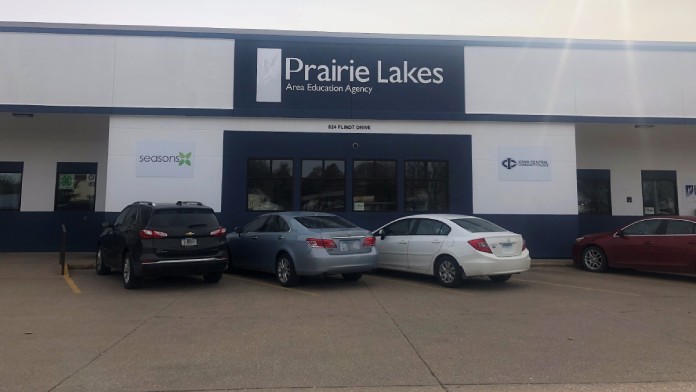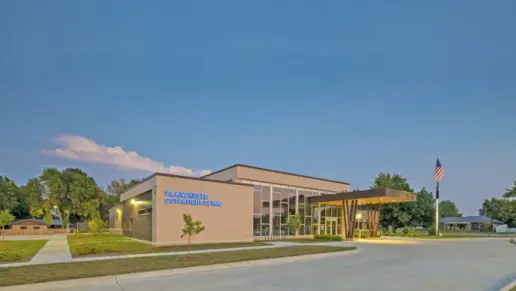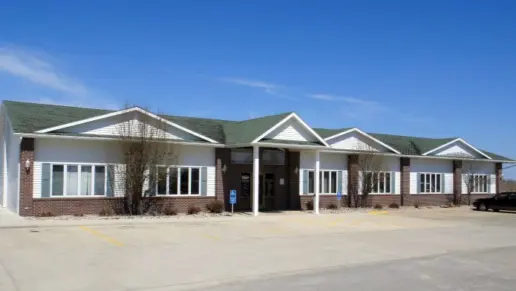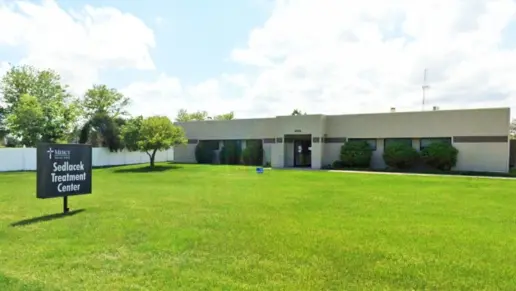About Seasons Center for Behavioral Health
Seasons Center for Behavioral Health, located in Storm Lake, Iowa (Buena Vista County) offers behavioral and mental health treatment for individuals of all ages. This facility offers three levels of drug rehab programs: intensive outpatient, extended outpatient and continuing care. This Buena Vista location also offers specialized substance abuse treatment to families or individuals involved with the Department of Human Services.
Their outpatient programs follow the 12-step philosophy for treatment. This facility especially focuses on the first four steps. The IOP involves nine or more hours of treatment each week. EOP participants will spend as little as three hours with a maximum of nine weekly. Both IOP and EOP are comprised of both group and individual sessions led by certified substance abuse counselors.
Their continuing care program is for individuals who have completed a treatment program and require additional structure and support to maintain their sobriety. Treatment will generally be group sessions with individual counseling as needed.
Seasons Center for Behavioral Health does not deny access to those who cannot pay. A sliding scale schedule based on family size and income is available. They accept many insurance providers such as Aetna, Amerigroup, United Healthcare, Magellan Health, Kaiser Permanente, Bright Health and Wellmark. Contact your provider to check coverage as out of network benefits can vary.
Rehab Score
Gallery

Location
Other Forms of Payment
Private insurance refers to any kind of healthcare coverage that isn't from the state or federal government. This includes individual and family plans offered by an employer or purchased from the Insurance Marketplace. Every plan will have different requirements and out of pocket costs so be sure to get the full details before you start treatment.
Self-pay involves paying for treatment out of your own pocket. You can use savings or credit, get a personal loan, or receive help from family and friends to fund your treatment. If you don't have insurance or your insurance plan doesn't cover a specific program, self-pay can help ensure you still get the care you need.
Addiction Treatments
Levels of Care
Programs

Clinical Services
People in substance use disorder treatment in Iowa find group therapy helps them benefit from shared experiences, gain new insights into the triggers of addiction, and learn new coping strategies. Group therapy promotes accountability and helps raise your motivation to seek sobriety and achieve sustainable recovery.
Individual therapy sessions offer you a personalized approach that involves an in depth exploration of your life experiences and patterns of substance use disorder. This helps your therapist identify harmful behaviors and thoughts and helps you recognize them so you have a deeper understanding of addiction and make positive changes in your life.
During family therapy in Iowa, therapists focus on the collective healing of all members of the family unit who were impacted by addiction. Therapists guide families in understanding the effect addiction has and develop healthy communication practices. By working together, families can help support their loved ones recovery.
Couples therapy in Iowa involves mediation, education, and psychotherapy. Participants learn about themselves and each other and how to successfully navigate challenges in the relationship. Sessions can include both joint and individual meetings with the therapist.
Trauma therapy focuses on helping you heal from the psychological impact of witnessing or experiencing a traumatic event. Your therapist offers you support and guidance, which ultimately helps reduce your distress and build resilience.
Contact Information
824 Flindt Dr
Suite 104
Storm Lake, IA 50588


